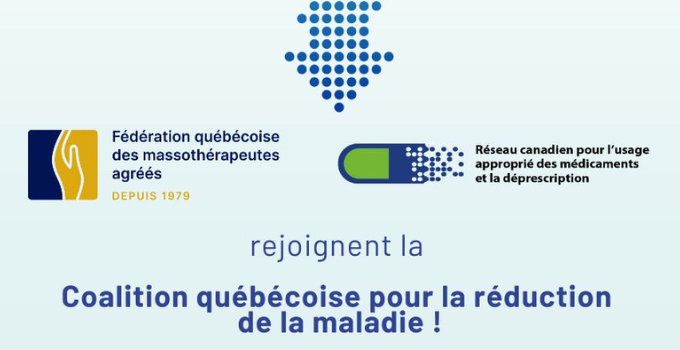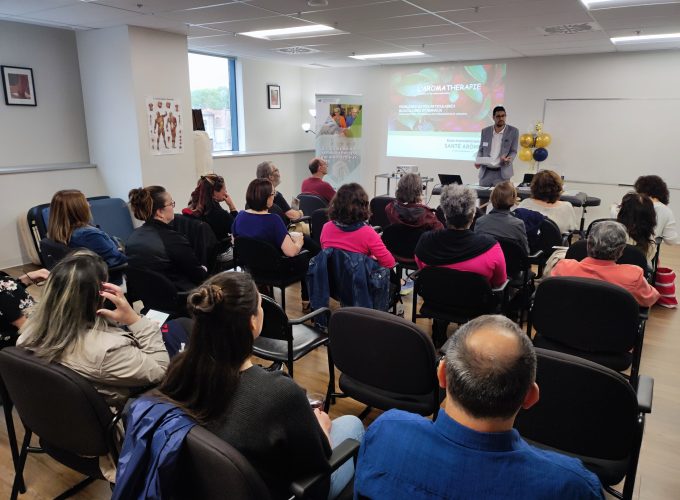 News, Newspaper
News, Newspaper
Struggling with insomnia? Give massage a try!
Are you among the estimated 15 to 20% of the population that suffers from insomnia? Numerous studies show that massage may prove beneficial.
Sleep is among the keys to achieving and maintaining good health. On average, adults require between seven and nine hours of sleep per day to feel reinvigorated.
That said, it is normal for our sleep to be cut short on occasion. When it is, we tend to be more fatigued and irritable in the morning, and less attentive. Our ability to concentrate can be affected, as well. Nonetheless, most people are usually able to catch up on their sleep the following night. When the situation persists, however, sleep deprivation can have a profound effect on our mental and physical health.
In the grips of insomnia
Sleep disorders occur when the duration and quality of a person’s sleep are disrupted. In the long term, sleep deprivation compromises immune function and increases the risk of developing chronic diseases, such as type-2 diabetes, cardiovascular disease, and depression.
Insomnia is among the most frequently diagnosed sleep disorders. It is characterized by an inability to fall asleep at night, frequent and prolonged periods of wakefulness during the night, or waking too early in the morning.
Women, seniors, and people who are stressed or anxious are more likely to suffer from insomnia. However, it’s important to bear in mind that certain diseases, such as asthma, gastro-esophageal reflux, arthritis and other pathologies associated with chronic pain, can also affect the duration and quality of sleep and give rise to insomnia.
Massage therapy and insomnia*
Good sleep hygiene and medications can help people living with insomnia manage their condition.
In recent years, studies have shown that massage therapy can play a significant role in improving sleep quality among people across all age groups. Indeed, massage has a calming and soothing effect, while also promoting well-being and improved sleep.
Massage therapy can also relieve the symptoms associated with certain diseases, which can greatly benefit people who are also dealing with sleep disorders. People living with cancer, menopausal women, and people who suffer from migraines, arthritis and lower back pain can also use massage therapy to improve their sleep quality [1].
*Massage therapy is meant to serve as a complementary therapy, which can help relieve the symptoms of a number of health conditions, including insomnia and other sleep disorders, if adapted to an individual’s medical condition and administered by a competent, well-trained massage therapist. As part of a multidisciplinary approach, it should be provided in conjunction with other health disciplines (medicine, nursing science, physiotherapy, chiropractic, etc.).
What the research says
Several studies have demonstrated the effectiveness of massage therapy in improving the quality of sleep, notably among menopausal women and women living with cancer:
- Researchers at the University of Sao Paulo in Brazil conducted a pilot study to assess the impact of massage on seven post-menopausal women suffering from insomnia [2]. Participants received a one-hour massage twice a week for eight weeks. At the conclusion of the study, the researchers observed a significant improvement in sleep quality and a decrease in symptoms of anxiety and depression among the participants. These findings were confirmed in a randomized trial carried out the following year [3].
- In Iran, researchers sought to determine whether adding massage therapy to medical treatment could have an impact on sleep quality among 57 women living with breast cancer [4]. Half of the participants received standard medical care, while the other half received an additional three 20-minute massages per week for a period of four weeks. Researchers observed that massage fostered a greater ability to relax on the part of the participants who received the massages, which in turn led to improved sleep quality.
For better sleep hygiene
- Get regular sleep. Whenever possible, go to bed and wake up at the same time every day. In doing so, you will help normalize your sleep-wake cycle.
- Foster an environment that is conducive to sleeping.Your bed should be comfortable, the bedroom temperature should be neither too cold nor too hot, and the room should be dark and silent.
- Stay away from stimulants before going to bed. Avoid coffee, tea, chocolate, physical activity, television, computers and smart phones in the few hours before you go to bed. They all have a stimulating effect, which may prevent you from falling asleep quickly.
To find out more
[1] American Massage Therapy Association. (2012). Massage therapy can help improve sleep – Position statement. Repéré à https://www.amtamassage.org/approved_position_statements/Massage-Therapy-Can-Help-Improve-Sleep.html
[2] Oliveira, D. S. et coll. (2011). Effect of massage in postmenopausal women with insomnia – A pilot study. Clinics, 66(2):343-346.
[3] Oliveira, D. S. et coll. (2012). Effect of therapeutic massage on insomnia and climacteric symptoms in postmenopausal women. Climacteric, 15:21-29.
[4] Kashani, F. et Kashani, P. (2014). The effect of massage therapy on the quality of sleep in breast cancer patients. Iran Journal of Nursing and Midwifery Research 19(2):113-118.




